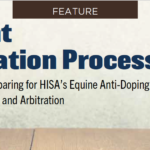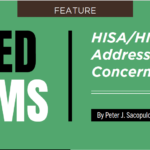With economic uncertainty dentists are questioning their commercial office space needs. Only you can answer if leasing or buying office space is the better business option. Although, leasing does have its advantages such as increased flexibility, tax benefits and reduced responsibilities. While the benefits of leasing may be a better fit, before you sign on the dotted line read ahead.
Dr. Jeffrey Spiegel has been practicing for 13 years at the Boston University School of Medicine.
“I opened a new office in a suburb of Boston,” Spiegel said.
Dr. Spiegel has been in his new space for roughly a year in a half. After much searching he decided to lease the space.
“I chose to lease because the places I wanted to be didn’t have anything appropriate for sale,” Spiegel said.
Dr. Spiegel said he was cautious not to ink the contract too quickly. He carefully considered the layout of the office, city codes and signage laws before choosing his new location.
“One thing is know your codes. There are specific rules regarding the number of bathrooms, size of rooms, egress, ingress etc. that you may look at a space and have an idea of how you would build it out. But the help of someone who knows the codes preferably an experience person in medical space who is going to be very helpful,” Spiegel said.
That is where experts like Shara Lerman with the firm Fenton Nelson come into play. Lerman recommends to not sign a lease without a lawyer or real estate professional examining the document to make sure all the terms and provisions are in proper order.
Lerman says it is pretty common for a provider to want to handle the lease arrangements on their own, to save money.
“The hour it takes us to look at a draft, is a lot cheaper than us having to come back to renegotiate. Usually there is some kind of problem or situation where there has been a disagreement and now they are working it out. It is going to take a lot more time, energy and expense to fix something after the fact,” Lerman said.
1. Lease Renewals. Lerman says huge problems arise when providers are leasing space in a hospital. She says to them it is a giant person versus a little person and they have problems getting things in writing.
“We have to point out to them that it is in both parties interest to have everything in writing because liability can go both ways,” Lerman said.
Dentists’s must guarantee that they do not enter into an arrangement that violates Stark Law or Anti-Kickback Statue. It is common when a provider is located at a hospital they will recommend services at that hospital. The Stark Law prohibits a dentist from making a referral for certain designated health services to an entity with which they have a financial relationship. A lease agreement qualifies as a financial relationship. The Anti-Kickback Statue prohibits payment to induce or reward referrals of items or services that are reimbursable by a federal healthcare program. To avoid liability under these regulations, the dentist must make sure the lease arrangements meet Stark Law and the Anti-Kickback Statue.
“We will wind up having to step in and go to the legal counsel of the hospital because on the other side you are dealing with an administrative person who says to you ‘this is just our form, you have to sign’,” Lerman said.
2. Understand what you will be paying for. The rent payment must be set in advance and in writing. Revenue and business generated cannot dictate the cost. Will you be paying a triple net lease? This means you will be paying for all of the real estate taxes, insurance and maintenance in addition to any normal fees like rent, premise and utilities.
3. Beware of memorandums of understandings (MOU). It is the old adage, what I said is not what you heard.
“I had a client who put tons and tons of stuff in the building and was not able to take it with him when he left. He was told he could, as long as he restored the space back to its original condition. Then in a paragraph in the lease it said ‘anything installed must remain’. He connected his anesthesia machine into the vent to the outside, therefore it became a permanent fixture. Even though with a couple screws he could disconnect it. It was a $25,000 piece of equipment, the landlord made him leave it and he had no choice,” Founder and Managing Partner of the Best Medical Business Solutions Jay Shorr said.
4. What are the rules of the building or association? Are multiple, similar, specialties prohibited? Shorr recommends if you are the first of that specialty in a huge complex to demand exclusivity.
“A guy signed a lease only to find out that another dentist has a restriction on specialty. After the guy spent all kinds of money to open up a new practice, the other dentist pulled out his trump card two days before the grand opening of the new tenant. They had to go to court, do an injunctive order before the court to stop the new tenant from opening. Then what happened is, they ended up suing the attorney for the landlord under the errors and emissions policy because it was the landlords obligation to disclose any types of situations like that and they failed to do that,” Shorr said.
You want good office space not good litigation, so check for exclusivity provisions.
5. Check their insurance policy. What services does your space come with, for example snow removal? Whose liability is the parking lot? View their insurance policy before you negotiate the lease because if someone slips, falls, sues are you covered? Is there enough insurance even if you are covered?
Before you sign on the dotted line heed the aforementioned advice. Most importantly understand the level of authority of the person you are dealing with. The person you may be talking with may not have signature power. Make sure you have everything in writing and finally, don’t be afraid to walk away from a deal.
Michael J. Sacopulos is a partner with Sacopulos, Johnson & Sacopulos in Terre Haute, Indiana. He also serves as Legal Analyst for Dental Products Report, Plastic Surgery Practice and is National Counsel for Medical Justice Services, Inc. His practice focuses on assisting healthcare professionals develop strategies and techniques to avoid medical liability claims. Mr. Sacopulos returned to Indiana to practice law after attending Harvard College and the London School of Economics. He may be reached at Mike_Sacopulos@Sacopulos.com.




